Fears Grow Over Missing Iranian Satirist
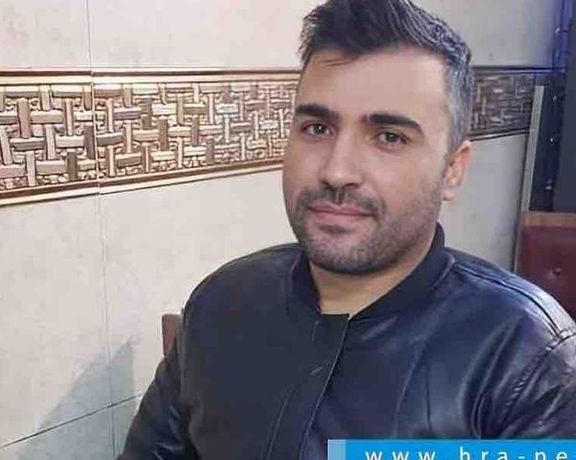
A week after the arrest and forced disappearance of prominent satirist Shaker Bouri, concerns are growing over his safety and whereabouts.

A week after the arrest and forced disappearance of prominent satirist Shaker Bouri, concerns are growing over his safety and whereabouts.
For as yet unknown reasons, the Abadan Intelligence Department to which he was summoned, has asked his family to declare him a missing person while the Dadban Legal Education and Counseling Center reported that the family's efforts to locate their son have so far been unsuccessful.
Bouri, a native of Khuzestan in southern Iran, was summoned to the Abadan Intelligence Department last Tuesday and has since been unaccounted for. Despite the presence of at least two witnesses who confirmed his entry into the building, the authorities have failed to provide any updates on his status.
Prior to his disappearance, plainclothes forces had raided Bouri's residence, confiscating his mobile phone before taking him into custody. It is believed to be related to his popularity on social media platforms for his lighthearted yet incisive critiques of Iranian officials and pressing societal issues.
Twitter users have expressed their mounting anxiety and frustration over the lack of information regarding his current whereabouts and wellbeing, echoing the sentiment with the hashtag #WhereIsShakerBouri. Many are drawing parallels to the tragic case of Amin Bazargar, a wrestler, whose remains were discovered over a year after his arrest.
Bouri's case is emblematic of a broader crackdown on social media activists, artists, and comedians in recent months by Iranian authorities.
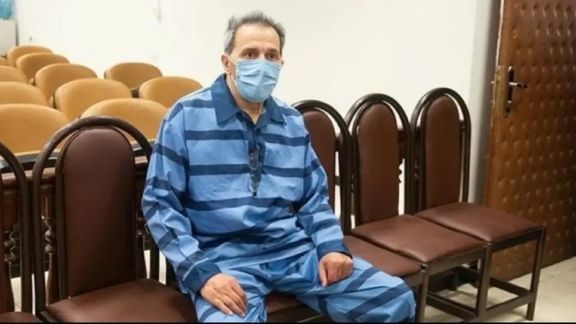
The case of Jamshid Sharmahd, a German citizen, who was sentenced to death by Iran's regime, has become a "top priority" for the German Foreign Ministry.
In a statement to Iran International, a spokesperson for the ministry affirmed their active campaign to secure Sharmahd's release.
"The case of Jamshid Sharmahd is our top priority," the spokesperson stated, underscoring the significance of the matter. "We are actively campaigning for Sharmahd with the utmost effort at a high level, through all available channels and at every opportunity. We are making it clear to the Iranian side that the execution of the death sentence would have serious consequences. Preventing the enforcement of the decision is of the utmost importance to us."
However, the German Foreign Ministry has refrained from disclosing whether diplomatic relations with Tehran or its substantial export business with Iran, amounting to over $1.2 billion, would be severed as part of efforts to secure Sharmahd's release.
Sharmahd was sentenced to death in April by Iran's judiciary on charges of alleged terrorism. He was accused of leading the pro-monarchist group Kingdom Assembly of Iran, believed to be responsible for a fatal 2008 bombing and plotting additional attacks within the country. The group, operating from Los Angeles, advocates for the restoration of Iran's monarchy and operates opposition media platforms.
His case is emblematic of what human rights organizations term "hostage diplomacy," where Western prisoners are held on charges of espionage or alleged crimes. Iran maintains that the prisoners are being held for legitimate reasons, despite international concerns and objections.
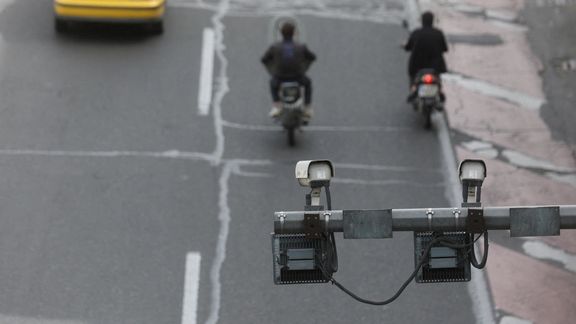
The scandal surrounding the German corporation Bosch’s delivery of surveillance technology to Iran has expanded to include Denmark, Sweden, the Netherlands and China.
Germany’s government and the country’s Bosch corporation are facing heavy criticism after Iran International reported on Monday that the engineering giant Bosch sold surveillance equipment to Iran. Germany’s ARD first revealed the alleged Bosch impropriety.
The United States sanctioned the Chinese company Tiandy last December for supplying video surveillance equipment to Iran and in January the European Union imposed sanctions on a firm that represents Tiandy in Iran.
Iranian activists told the German news outlet that the Danish security company Milestone Systems delivered video analysis software to Iran. Milestone told the outlet that it sold its software to Iran until 2019. The German news organization said Milestone Systems provided the video management software XProtect, an open platform that can be used for various purposes, to Iran.
The Danish company’s website states that XProtect can also be used to compare faces. ARD wrote “Milestone’s software can be combined with surveillance cameras from different manufacturers -- including cameras from Bosch.”
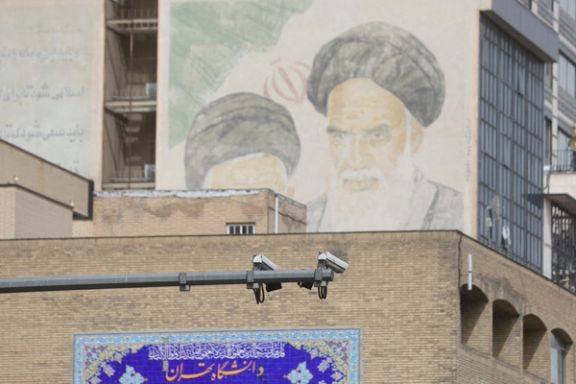
According to Iranian activists, the clerical regime also uses cameras from Sweden and the Netherlands. The companies from Sweden and Holland were not named.
Iran International has learned that Germany’s foreign ministry is referring press queries to Bosch. According to a Bosch statement to ARD, the engineering company sold 8,000 security cameras between 2016 and 2018 to Iran. However, Bosch claims its cameras cannot be used for fully automatic facial recognition.
Germany’s foreign ministry remains mum on the controversial sale of Bosch security cameras to Iran’s regime that can be used to track protesters and women who defy the mandatory hijab.
According to sources, Germany’s foreign ministry is punting media questions to government website information about its export sanctions imposed on Iran and to information about German trade with Iran’s regime being at a historic law.
It is unclear why Germany’s export control agency green-lighted the Bosch sale of mass surveillance technology to Iran’s regime.
Iran International reached out to numerous Bosch spokespeople, including its communication head, Christof Ehrhart, and Natalie Kuzhim, who is responsible for the Middle East. Bosch refused to answer a detailed Iran International press query about the corporation’s alleged misconduct.
Iran International learned that Germany’s foreign ministry has pointed to a diplomatic statement on X, formerly known as Twitter, about Iran’s new crackdown on women.
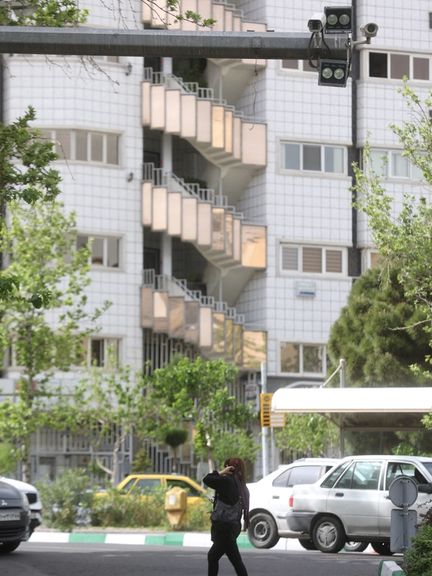
Tobias Tunkel, Director of Middle East and North Africa for the German foreign ministry,wrote on August 1 on X: “Iran’s new so-called ‘hijab-and-chastity’ legal draft effectively aims to ban unveiled women from public life. If passed into law, it would further exacerbate the systemic oppression against women and girls in Iran. #WomensRightsAreHumanRights.”
Tunkel’s message on X received a mere 3 retweets and 5 likes as of Monday evening. Germany’s foreign minister, Annalena Baerbock, claims she is promoting a “feminist foreign policy.” Baerbock has refused to classify Iran’s Islamic Revolutionary Guard Corps (IRGC) as a foreign terrorist organization.
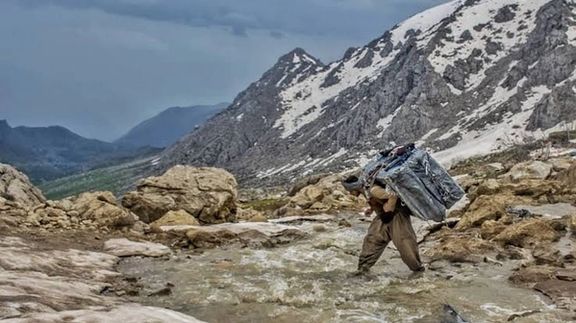
One individual was killed, and several others injured when regime agents opened fire on a group of Kolbars near the border area of Nowsud city in Kermanshah.
Kolbars, known as "those who carry a load" in Persian-Kurdish, engage in the arduous task of transporting goods across the treacherous mountainous border between Iran and Iraq, often facing economic desperation.
The victim has been identified as Aso Karimi, a 39-year-old Kolber from Paveh, who sustained a fatal gunshot wound to the head. Karimi's body was discovered nearly 19 hours after the incident, alongside nine other severely injured Kolbars.
The incident has ignited outrage among civil activists and Kolbars in Paveh, prompting a planned protest rally in front of the city governor's office on Tuesday.
Ehsan Rasouli, one of the injured, underwent surgery after sustaining a gunshot wound to the chest. Others were reported to have suffered injuries to various parts of their bodies, including the head, back, hands, and feet, with some being in critical condition.
Statistics released by Kolbar News paint a distressing picture of the risks faced by Kolbars in the region. In the first half of 2023 alone, 61 Kolbars lost their lives in border areas and inter-road routes of West Azarbaijan, Kordestan, and Kermanshah provinces. Causes of these deaths include direct fire by regime forces, avalanches, frostbite, mine-related accidents, and falls from mountains and heights.
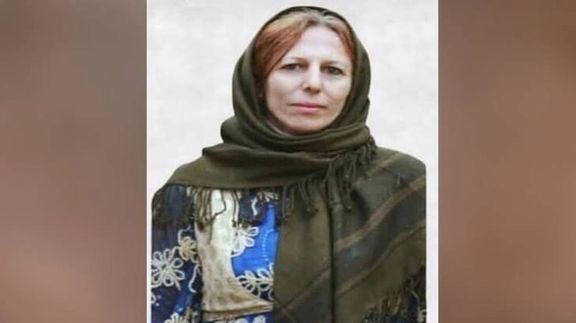
In a protest against her confinement, Soheila Mohammadi, an Iranian political prisoner, has embarked on a hunger strike by sewing her lips together.
Norway-based human rights group, Hengaw, reported that Mohammadi, a resident of Salmas city in the western Azarbaijan province, initiated her hunger strike within the women's ward of Urmia Central Prison on Saturday. Mohammadi's protest aims to draw attention to her situation and the conditions faced by herself and fellow inmates.
Despite serving three years of her five-year sentence, Mohammadi has been denied the right to parole and leave. An informed source quoted by Hengaw disclosed that even her request for a meeting with the prosecutor has been obstructed by the prison authorities.
This is not the first time Mohammadi has resorted to drastic measures. Earlier this year, she was reported to have attempted suicide due to the pressures exerted by government security institutions, which hindered her chances of being granted leave.
Mohammadi's arrest dates back to the autumn of 2020 when she was apprehended by intelligence forces of the Islamic Revolutionary Guard Corps in Salmas. Following several months of interrogation, she was transferred to the women's ward of Urmia Central Prison. She was subsequently sentenced to a five-year imprisonment term on charges of "membership in the Kurdistan Free Life Party (PJAK)" by the Revolutionary Court of Urmia.
Mohammadi's case highlights the mounting pressure on Kurdish civil groups and activists, particularly in the wake of the recent "Woman, Life, Freedom" protests. These demonstrations have drawn increased attention to the plight of Kurdish individuals and groups advocating for their rights and freedoms within Iran.
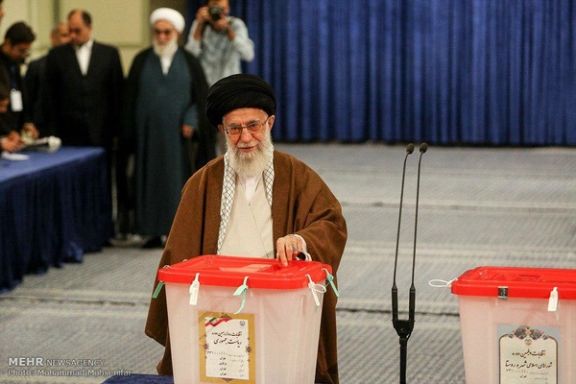
Tens of public figures in Iran have expressed concern in a statement that the upcoming parliamentary elections have been taken hostage by hardliners and security organs.
The statement released Sunday addressed the Iranian nation as "the true owners of this country and its government," and maintained that "the rulers have no special privilege other thanrepresenting and serving the people."
The statement has been posted on Telegram messaging app in an account that belongs to Saham News, a media outlet that represented reformist figure Mehdi Karrubi, a former parliamentary speaker and presidential candidate.
The political activists, writers and civil rights defenders stated that the elections in Iran have been hostage to the "arbitrary supervision" of the Guardian Council, a body that operates under the direct supervision of Supreme Leader Ali Khamenei and vets the candidates based on their loyalty to him.
They also complained about the intervention of security and intelligence organizations in the election process. According to the statement, the worst examples took place in the 2020 parliamentary elections and the presidential election in 2021 which brought Ebrahim Raisi to power and packed the parliament with hardliners.
The activists also charged that the Assembly of Experts whose members are chosen based on the same kind of vetting by the Guardian Council lacks the independence and capability to supervise the Supreme Leader's performance, as the constitution requires.
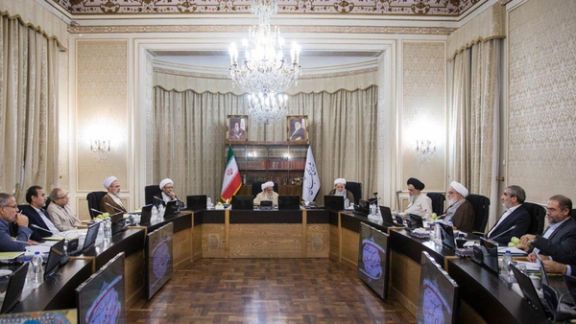
"The Islamic Republic is overwhelmed by a crisis which is the outcome of distancing itself from the ideals of a republic and democracy and its submission to despotism and dictatorship. During the past 44 years, this has led to multiple political, economic and cultural crises as well as leading to poverty, corruption, repression, violations of the citizens' legitimate rights and freedoms," the statement added.
The activists further said: "As a result of this situation, young Iranians have lost their hope in any improvement in this dreadful situation and see only two options before them: Leave the country or continue living in Iran without dignity under the pressure of humiliation."
In another part of the statement, the signatories pointed out that the Islamic Republic has made hijab enforcement a security issue and by doing so has made the situation even more complicated for women who under the pressure feel further humiliated.
But what was even more notable in the statement was a demand to change the regime’s anti-West foreign policy.
"The country's independence has been seriously weakened as a result of a foreign policy devoid of dignity and prudence. This situation has made Iran's foreign policy a playground for Russia's aggressive policies," the statement said, adding that "The Islamic Republic's foreign policy has undermined Iran's national interests and disrupted the balance in its relations with East and West and made the country's progress and development hostage to seriously damaging sanctions."
The activists further pointed out that as a result of this policy despite its anti-imperialistic slogans, the regime has submitted to the humiliating oil for food arrangements and barter trade with underprivileged countries to provide food and medicine.
The signatories to the statement declared that "In such a catastrophic situation that has forced a large part of Iranians and their elites to leave the country for good, holding an election is nothing more than beautifying the regime in a bid to lend it some legitimacy. "We do not believe that such an election is going to lead to any improvement in governance," they insisted.
"What can justify people's participation in the upcoming election in March, is the regime's return to democracy by listening to the people and their elites and bringing about structural reforms in the country. A decision to hold a referendum to change the Constitution is a requirement for that change. Without doing this participation in the election would be a deceit against the country's national interests," the statement concluded.
Centrist politician Faezeh Hashemi, former state TV Chief Mohammad Sarafraz, 1980s militant journalist Isa Saharkhiz, and several cultural figures such as poet Ali Babachahi are among the signatories of the statement.